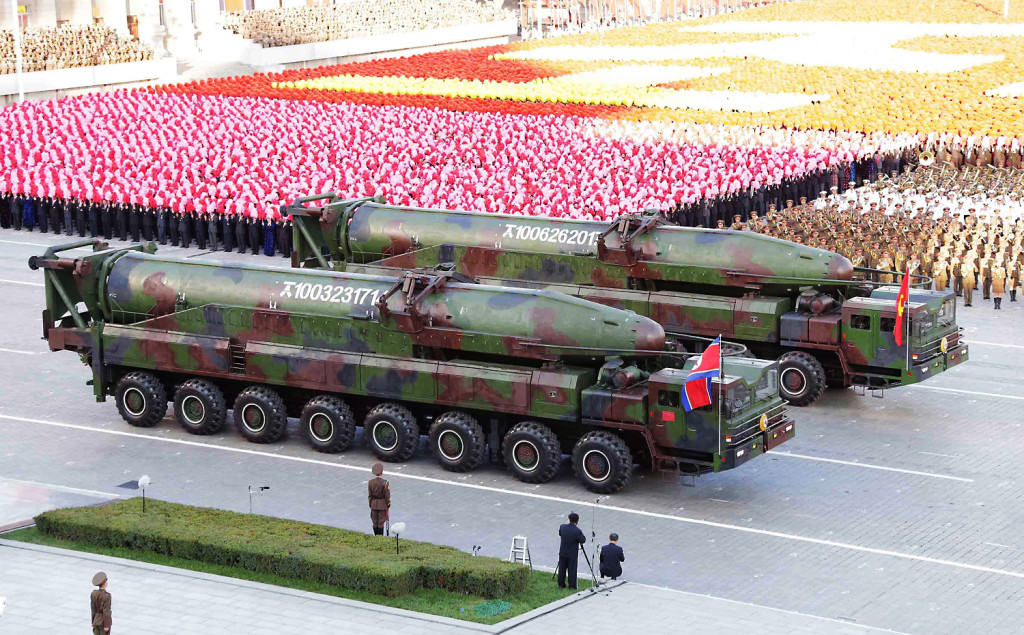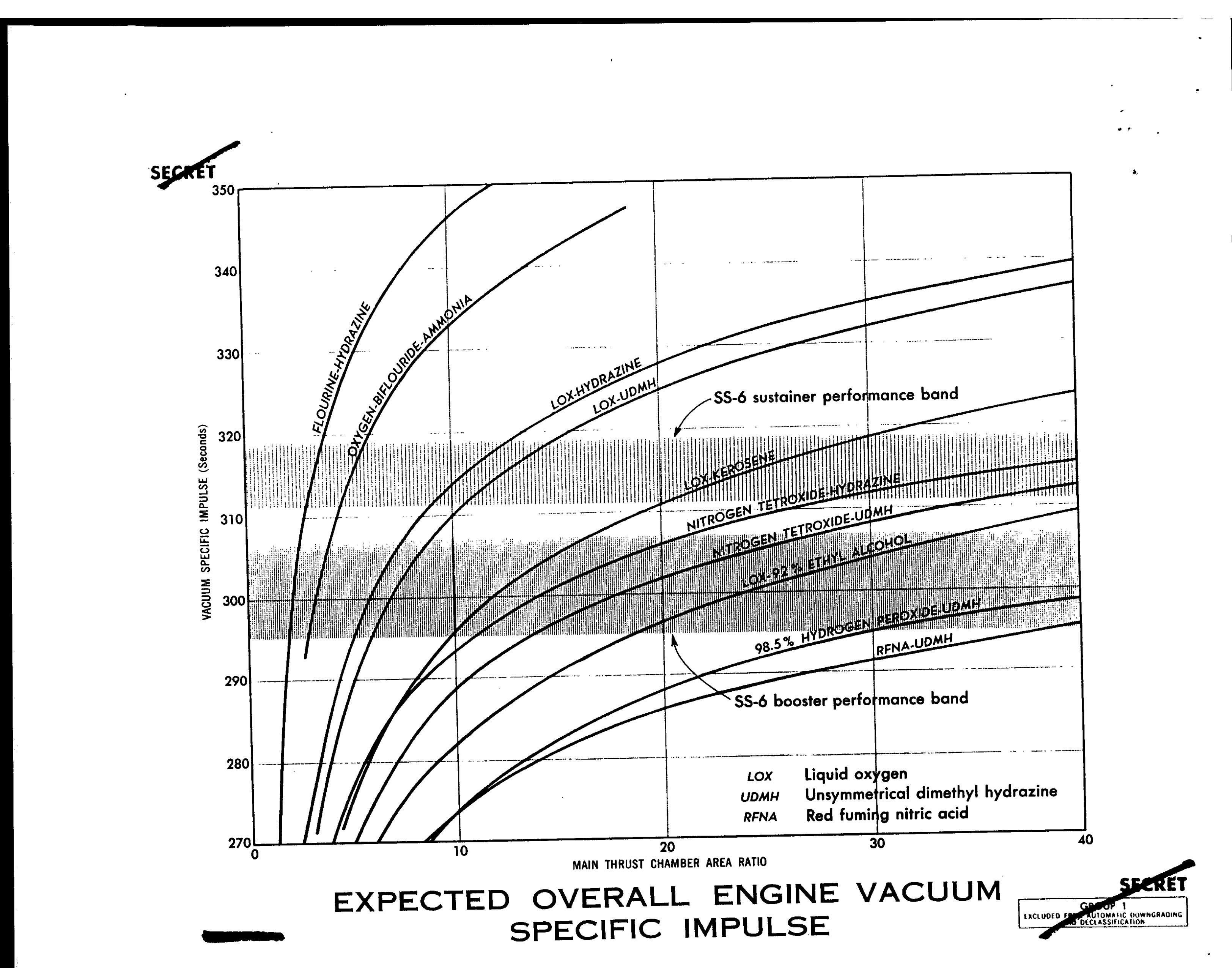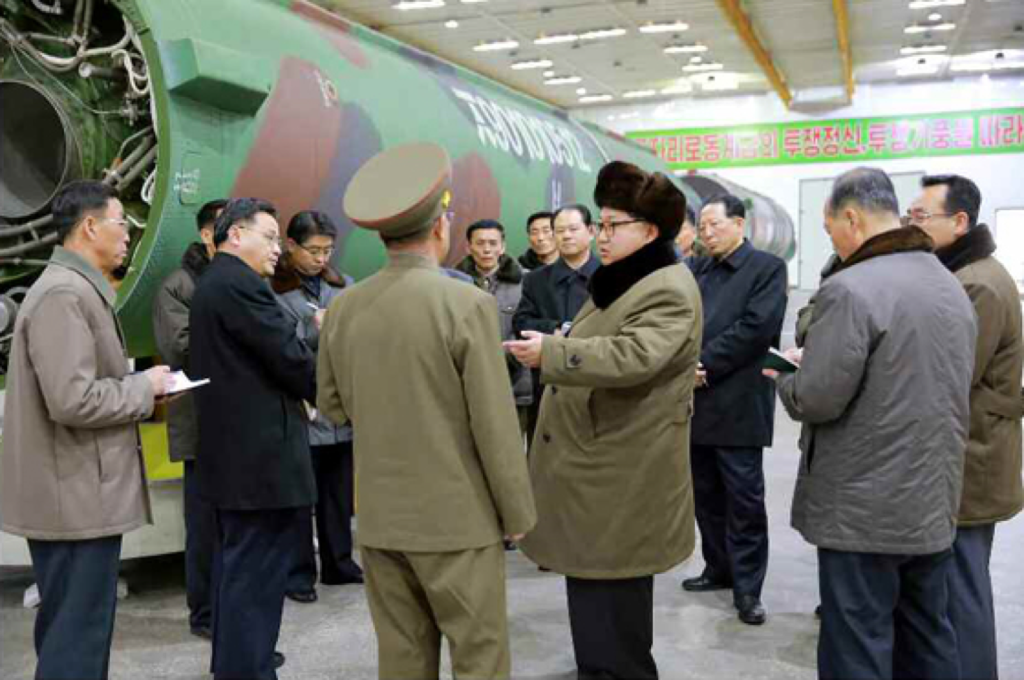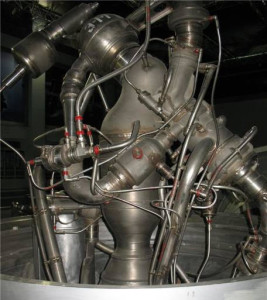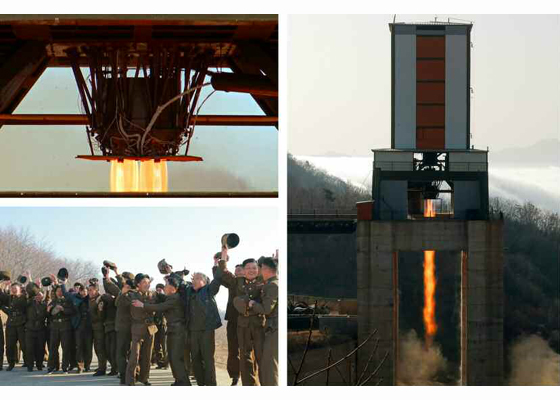(210) 03-19-2016-to-03-25-2016_____****THE****WINDS****of****WAR****
http://www.timebomb2000.com/vb/show...25-2016_____****THE****WINDS****of****WAR****
(211) 03-26-2016-to-04-01-2016_____****THE****WINDS****of****WAR****
http://www.timebomb2000.com/vb/show...01-2016_____****THE****WINDS****of****WAR****
(212) 04-02-2016-to-04-08-2016_____****THE****WINDS****of****WAR****
http://www.timebomb2000.com/vb/show...08-2016_____****THE****WINDS****of****WAR****
_____
For links see article source.....
Posted for fair use.....
https://au.news.yahoo.com/world/a/3...der-kim-supervises-engine-test-for-icbm-kcna/
North Korea leader Kim supervises engine test for ICBM - KCNA
Reuters on April 9, 2016, 8:05 am
SEOUL (Reuters) - North Korean leader Kim Jong Un supervised a successful test of a new engine for an intercontinental ballistic missile (ICBM), its state media said on Saturday in the latest claim of making advances in its arms programme that has brought U.N. sanctions.
Tension has remained high on the Korean peninsula after the North's nuclear test and a long-range rocket launch earlier in the year and South Korean and U.S. troops conducted large-scale joint drills amid harsh rhetoric from both rival Koreas.
The engine was ignited at Kim's command and released a fiery blast, and the test showed the indigenously designed rocket fulfilled all required conditions, KCNA said.
"Dear Comrade Kim Jong Un said now we can mount an ever more powerful nuclear warhead on a new intercontinental ballistic rocket and put the den of evil in the United States and all over the world within our strike range," KCNA said.
The test was conducted at the country's missile station near its west coast where in February it launched a long-range rocket that put an object into space orbit and was supervised by Kim, the North's KCNA news agency said.
The North said in March that it had miniaturised a nuclear warhead to be mounted on ballistic missiles and conducted a simulated re-entry test of a ballistic missile, which could indicate advances in its ICBM programme if true.
But South Korean officials questioned those assertions and said the North was several years away from developing an ICBM. The United States said there was no proof of the North's claims and called on Pyongyang to halt actions that fuelled tension.
The North conducted its fourth nuclear test in January and the rocket launch in February in defiance of international warnings and past U.N. sanctions, triggering a new Security Council resolution that imposed more punishment.
Despite the claims, the North has yet to conduct a flight-test of a long-range missile or an ICBM that would demonstrate successful mastery of the technology needed to bring a missile back into the atmosphere and hit a target with precision.
The North claimed its January nuclear test was a successful hydrogen bomb test, but many experts and officials in the South and the United States said the blast was too small to have been from a successful such test.
(Reporting by Jack Kim; Editing by James Dalgleish)
http://www.timebomb2000.com/vb/show...25-2016_____****THE****WINDS****of****WAR****
(211) 03-26-2016-to-04-01-2016_____****THE****WINDS****of****WAR****
http://www.timebomb2000.com/vb/show...01-2016_____****THE****WINDS****of****WAR****
(212) 04-02-2016-to-04-08-2016_____****THE****WINDS****of****WAR****
http://www.timebomb2000.com/vb/show...08-2016_____****THE****WINDS****of****WAR****
_____
For links see article source.....
Posted for fair use.....
https://au.news.yahoo.com/world/a/3...der-kim-supervises-engine-test-for-icbm-kcna/
North Korea leader Kim supervises engine test for ICBM - KCNA
Reuters on April 9, 2016, 8:05 am
SEOUL (Reuters) - North Korean leader Kim Jong Un supervised a successful test of a new engine for an intercontinental ballistic missile (ICBM), its state media said on Saturday in the latest claim of making advances in its arms programme that has brought U.N. sanctions.
Tension has remained high on the Korean peninsula after the North's nuclear test and a long-range rocket launch earlier in the year and South Korean and U.S. troops conducted large-scale joint drills amid harsh rhetoric from both rival Koreas.
The engine was ignited at Kim's command and released a fiery blast, and the test showed the indigenously designed rocket fulfilled all required conditions, KCNA said.
"Dear Comrade Kim Jong Un said now we can mount an ever more powerful nuclear warhead on a new intercontinental ballistic rocket and put the den of evil in the United States and all over the world within our strike range," KCNA said.
The test was conducted at the country's missile station near its west coast where in February it launched a long-range rocket that put an object into space orbit and was supervised by Kim, the North's KCNA news agency said.
The North said in March that it had miniaturised a nuclear warhead to be mounted on ballistic missiles and conducted a simulated re-entry test of a ballistic missile, which could indicate advances in its ICBM programme if true.
But South Korean officials questioned those assertions and said the North was several years away from developing an ICBM. The United States said there was no proof of the North's claims and called on Pyongyang to halt actions that fuelled tension.
The North conducted its fourth nuclear test in January and the rocket launch in February in defiance of international warnings and past U.N. sanctions, triggering a new Security Council resolution that imposed more punishment.
Despite the claims, the North has yet to conduct a flight-test of a long-range missile or an ICBM that would demonstrate successful mastery of the technology needed to bring a missile back into the atmosphere and hit a target with precision.
The North claimed its January nuclear test was a successful hydrogen bomb test, but many experts and officials in the South and the United States said the blast was too small to have been from a successful such test.
(Reporting by Jack Kim; Editing by James Dalgleish)







